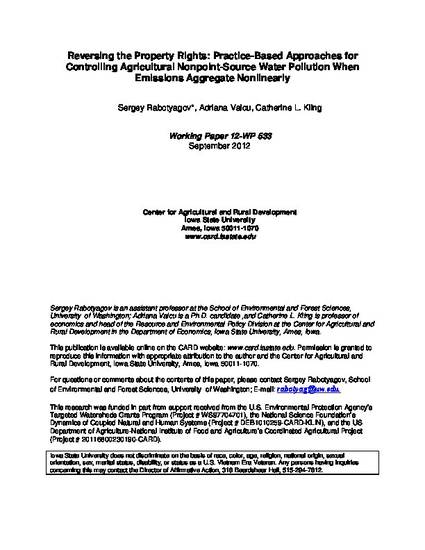
Nonpoint-source water pollution remains a major issue despite decades of research and sizable conservation programs. We suggest that by taking advantage of contemporary modeling and optimization approaches, good approximations to physical relationships can be constructed so that even in the presence of unobservable field emissions and nonlinear fate and transport relationships, standard economic tools of command-and-control requirements, performance standards, and trading can be implemented. The Boone River Watershed in the U.S. state of Iowa is used for empirical demonstration. Although the approach can be used to construct voluntary conservation policies, the described policies involve imposing requirements on agricultural polluters rather than relying on voluntary actions alone.
Available at: http://works.bepress.com/catherine_kling/87/

This is a working paper of an article from American Journal of Agricultural Economics 96 (2014): 397, doi: 10.1093/ajae/aat094